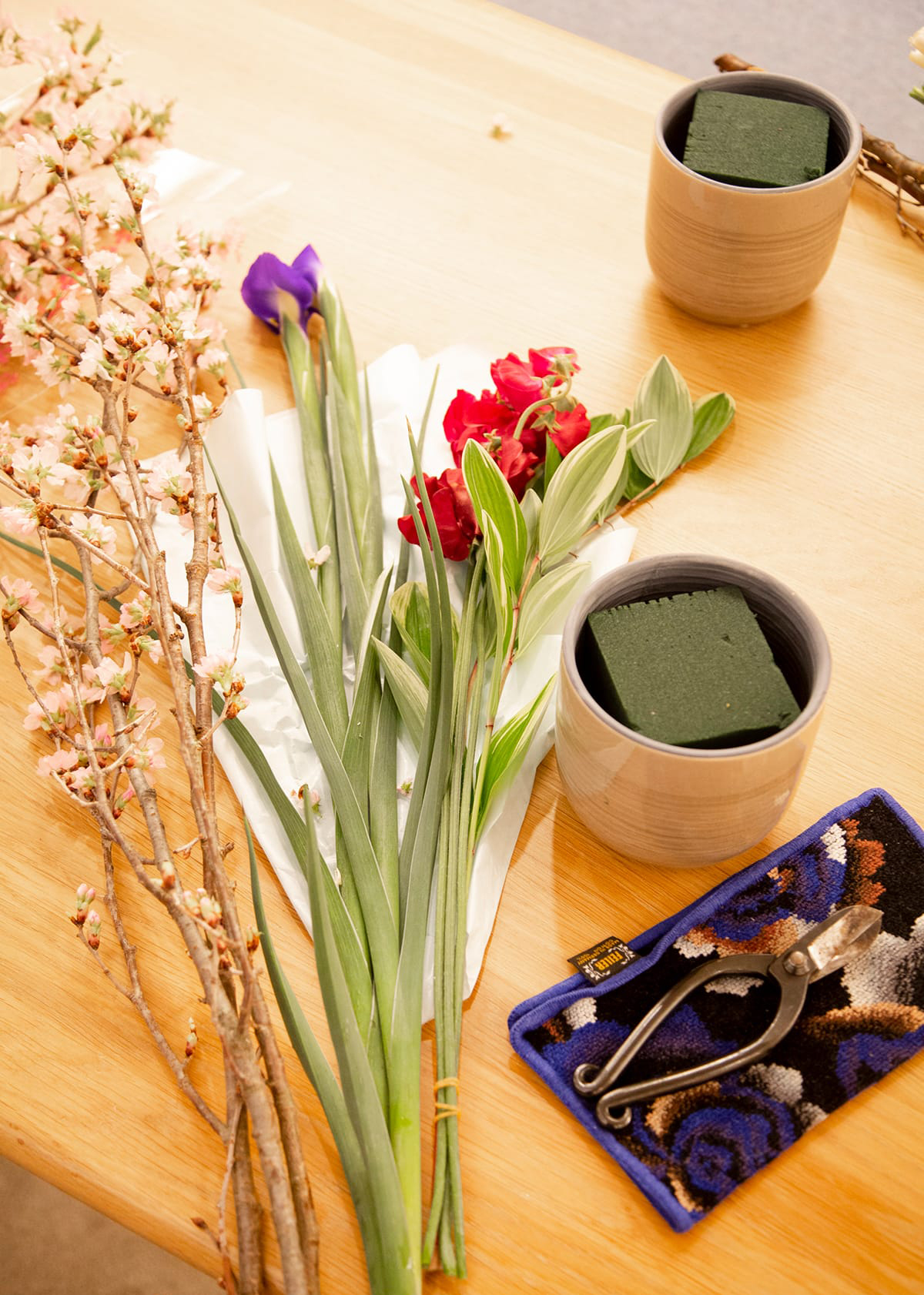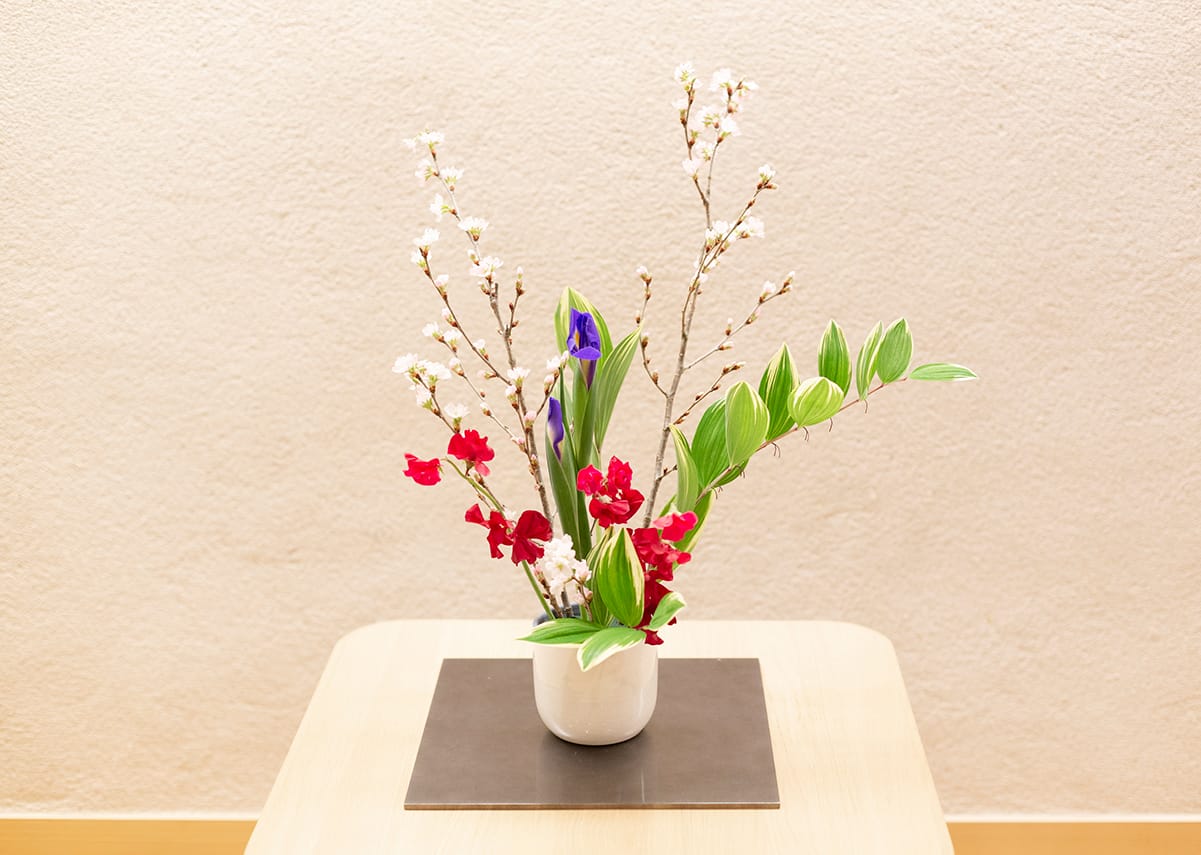Azabu Gardens Journal
ONLINE IKEBANA
Azabu Gardens residents learned a new skill from an ikebana expert
 The weather has started to change, with the sun making a more regular appearance and the flowers coming out to bloom. While the pandemic lingers, it may feel like leaving the house to enjoy a stroll in the park could be too risky. So, to bring spring into the homes of the Azabu Gardens residents, the staff organized an online ikebana (flower arranging) class.
The weather has started to change, with the sun making a more regular appearance and the flowers coming out to bloom. While the pandemic lingers, it may feel like leaving the house to enjoy a stroll in the park could be too risky. So, to bring spring into the homes of the Azabu Gardens residents, the staff organized an online ikebana (flower arranging) class.
Held on April 24 at 1:30pm, the class was taught by Yuka Mori, an ikebana master who has held lectures at various embassies. Her expertise and ability were greatly appreciated by the guests, with one commenting: “Our teacher was so kind as she taught and reviewed each of our arrangements. Even doing it remotely, through Zoom, turned out great!”
The event began with Yuka explaining the history of ikebana, which goes back centuries. It is thought to have been introduced to Japan in the 6th century as part of Buddhist practice. However, the art of flower arranging as we know it now dates back to feudal Japan and has been present in Japanese culture ever since.

After this, the participants began to practice flower arranging by referring to examples set by Yuka, working with a variety of flower materials. Using the greenery of border privet, mixed with the captivating colors of calla (white), Thunberg lily (orange), miniature rose (pink) and wavyleaf sea lavender (purple), the guests put together some truly beautiful arrangements with the gentle instruction and feedback from Yuka.
Overall, the guests enjoyed the relaxed and creative environment of the class, while learning something of cultural importance! One participant said: “I wanted to thank those who organized the ikebana class today. We all enjoyed learning about Japanese flower arranging. It is a beautiful craft.”
While the flower arrangements won’t last forever, the things learned in the class will surely remain in the minds of the participants. And those that leave Japan will go with a new skill that holds cultural meaning that they can practice when they want a little bit of Japanese spring in their house—whatever time of year it may be!

